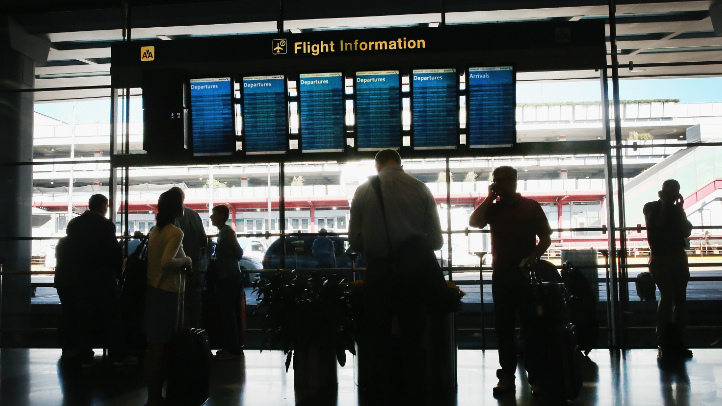It's a question many have been asking since breakthrough infections were first reported: can you still spread the virus if you are vaccinated and become infected?
The answer is believed to be yes, but Chicago's top doctor said evidence suggests fully vaccinated people have a smaller window to spread it.
"So the vaccine does not 100% stop transmission and it never has," Chicago Department of Public Health Commissioner Dr. Allison Arwady said. "But it is the most important thing that decreases your risk of getting COVID... You cannot spread COVID if you are not infected with COVID. And separate from that, if you are vaccinated and you get a breakthrough infection, the time that you could even potentially spread COVID is less than for people who are unvaccinated."
NBC News reported earlier this month that a new study found fully vaccinated people were less likely to spread the virus even if they become infected, a particularly interesting finding as officials investigate the spread of the delta variant and how vaccination can reduce transmission.
Feeling out of the loop? We'll catch you up on the Chicago news you need to know. Sign up for the weekly Chicago Catch-Up newsletter here.
The study, from British scientists at the University of Oxford, reportedly examined records of nearly 150,000 contacts traced from roughly 100,000 coronavirus cases. including people who were fully or partially vaccinated with either the Pfizer-BioNTech or the AstraZeneca vaccines, as well as people who were unvaccinated. The researchers then looked at how the vaccines affected the spread of the virus if a person had a breakthrough infection with either the alpha variant or the highly contagious delta variant.
According to the CDC, studies conducted before the emergence of the delta variant found that people vaccinated with mRNA COVID vaccines who develop a breakthrough infection "generally have a lower viral load than unvaccinated people."
"This observation may indicate reduced transmissibility, as viral load has been identified as a key driver of transmission," the agency reported, noting that further study was needed.
Local
For the Delta variant, early data indicated vaccinated and unvaccinated persons infected with Delta have similar levels of viral RNA and culturable virus detected, but some studies showed "a more rapid decline in viral RNA and culturable virus in fully vaccinated people," according to the CDC.
"These findings... suggest that any associated transmission risk is substantially reduced in vaccinated people," the CDC stated. "Even for delta, evidence suggests fully vaccinated people who become infected are infectious for shorter periods of time than unvaccinated people infected with delta."
While rare, breakthrough infections continue to be reported in Illinois and across the country, though experts note that most people who are fully vaccinated and contract COVID had mild infections, if they show any symptoms at all, and rarely require hospitalization or die.
In Illinois, 2,297 fully-vaccinated people have been hospitalized since January with a breakthrough infection, representing 0.032% of the state's fully-vaccination population. At the same time, 679 have died.
Illinois' Department of Public Health reported that of those who were hospitalized or died, more than half had underlying health conditions.
According to Chicago's data, unvaccinated residents are more than twice as likely to contract COVID compared to fully-vaccinated residents.
Arwady said that while no vaccine will "100% stop COVID," vaccination and masking remain the most effective prevention tools.
Her comments come as health officials debate the need for booster shots for millions of Americans.
Last month, the FDA authorized booster shots of Pfizer’s vaccine for older Americans and other groups with heightened vulnerability to COVID-19.
This week, a panel of outside experts for the FDA is reviewing data to determine if it will recommend authorization of the Moderna and Johnson & Johnson booster doses. It’s the first step in a review process that also includes sign-off from the leadership of both the FDA and the Centers for Disease Control and Prevention.
An estimated 103 million Americans are fully vaccinated with Pfizer’s formula, 69 million with Moderna’s and 15 million with J&J’s, according to the CDC.
Scientists have emphasized that all three vaccines used in the U.S. still offer strong protection against severe disease and death from COVID-19. The issue now is how quickly, and how much, protection against milder infection may wane.



